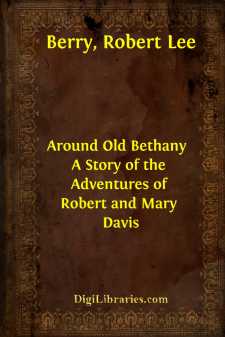Categories
- Antiques & Collectibles 13
- Architecture 36
- Art 48
- Bibles 22
- Biography & Autobiography 815
- Body, Mind & Spirit 144
- Business & Economics 28
- Children's Books 18
- Children's Fiction 14
- Computers 4
- Cooking 94
- Crafts & Hobbies 4
- Drama 346
- Education 58
- Family & Relationships 59
- Fiction 11834
- Games 19
- Gardening 17
- Health & Fitness 34
- History 1378
- House & Home 1
- Humor 147
- Juvenile Fiction 1873
- Juvenile Nonfiction 202
- Language Arts & Disciplines 89
- Law 16
- Literary Collections 686
- Literary Criticism 179
- Mathematics 13
- Medical 41
- Music 40
- Nature 179
- Non-Classifiable 1768
- Performing Arts 7
- Periodicals 1453
- Philosophy 65
- Photography 2
- Poetry 896
- Political Science 203
- Psychology 44
- Reference 154
- Religion 515
- Science 126
- Self-Help 85
- Social Science 83
- Sports & Recreation 34
- Study Aids 3
- Technology & Engineering 59
- Transportation 23
- Travel 463
- True Crime 29
Our website is made possible by displaying online advertisements to our visitors.
Please consider supporting us by disabling your ad blocker.
Around Old Bethany A Story of the Adventures of Robert and Mary Davis
by: Robert Lee Berry
Description:
Excerpt
CHAPTER ONE
BEGINNING THE SEARCHIt was in the year of 1885 that the railroad was put through the particular corner of Missouri that marks the scene where the events of this narrative took place. With the coming of the railroad, there came an influx of new settlers, who were of various nationalities and conditions in life. There were Swedes from Malmo, Germans from Dresden, and Irishmen from Tyrone, all bent on founding a new home in the new country. Besides these, there were Americans of many kinds and inclinations. All of these settlers brought with them the particular brands of religion in which they had been brought up. The Swedes and Germans were Lutherans, but each nationality was of a different synod and had little agreement or fellowship. The Irishmen were Roman Catholics, while the Americans were divided up among the different denominations. No sooner had these settlers built themselves homes than they started to build chapels and churches; it was a chapel if its builders rebelled at calling a building a church, and it was a church if its builders had no such scruples. No survey was made as an effort to find out how many churches were needed; indeed, each denomination erected a place of worship even if there was only a handful represented in its membership. Those were the days of unleavened bread and bitter herbs, when every denomination was full of sectarian rivalry, and each of them claimed more or less of a monopoly upon the love and power of God. Revival-meetings were held frequently, sometimes contemporaneously, and the "doors of the church" were swung open every Sunday for the admission of new members.
The center of this settlement was Bethany, consisting of a few straggling huts on the north side of the railroad, and the business section and the more pretentious homes of the well-to-do on the south side. There was the usual run of stores. Most of them, however, were what were called "general stores," which meant that they sold everything from toothpicks to farm wagons and from handkerchiefs to cloaks and suits, besides groceries, shoes, and tinware. And it must be said also, for the sake of telling the truth, that they erected more church-buildings than they needed, because the same sectarian rivalry obtained there as in the country round about. It was common for members of one denomination to tell members of another that the others' church was a thousand miles farther away from God than was theirs.
Into this corner of Missouri, and into this atmosphere of denominational rivalry came Robert Davis and his wife, Mary. As it was, fortunately, both came of religious parents, and had had some religious teaching at home and in Sunday-school. One of the first things that they did after they were married was to solemnly dedicate their home to God, promising Him that they would follow Christ to the best of their knowledge and understanding. They began to attend church, now here, now there, and as a consequence, began to compare one denomination with another, with the result that they were thrown into confusion about which church to join; for they supposed it was their bounden duty to join one or the other of the denominations represented there....



